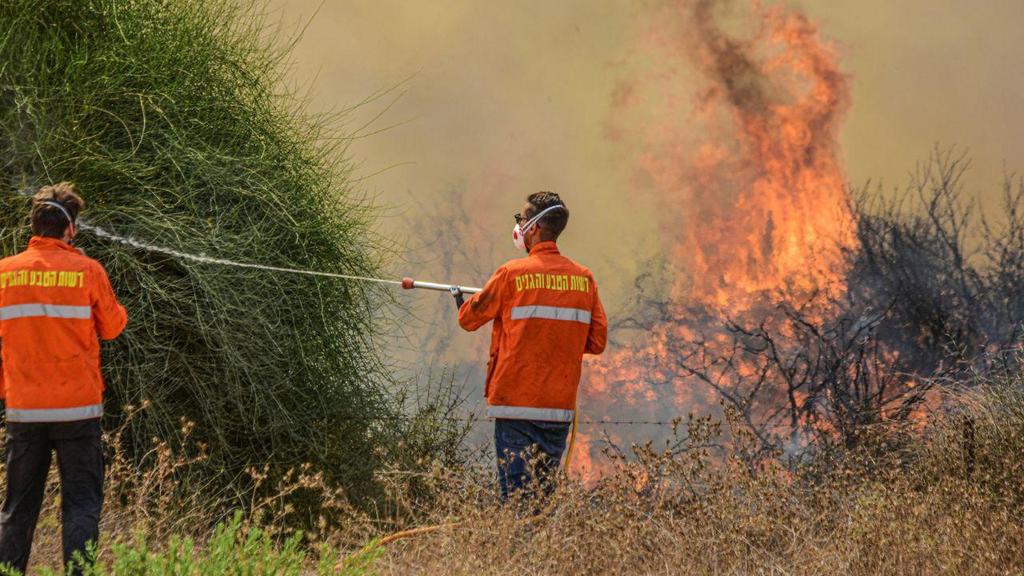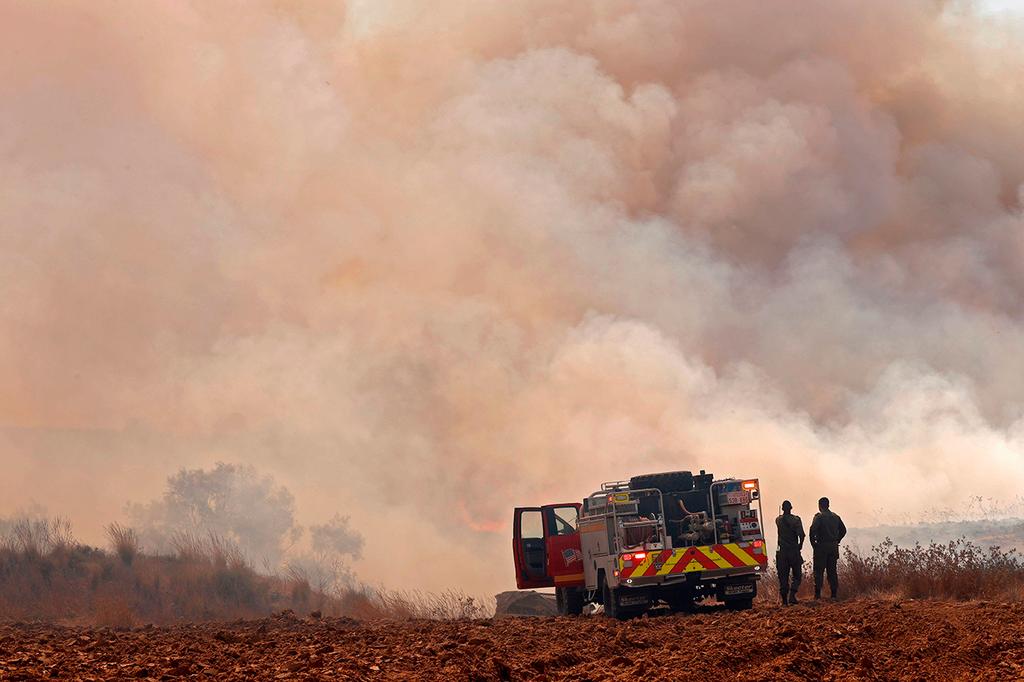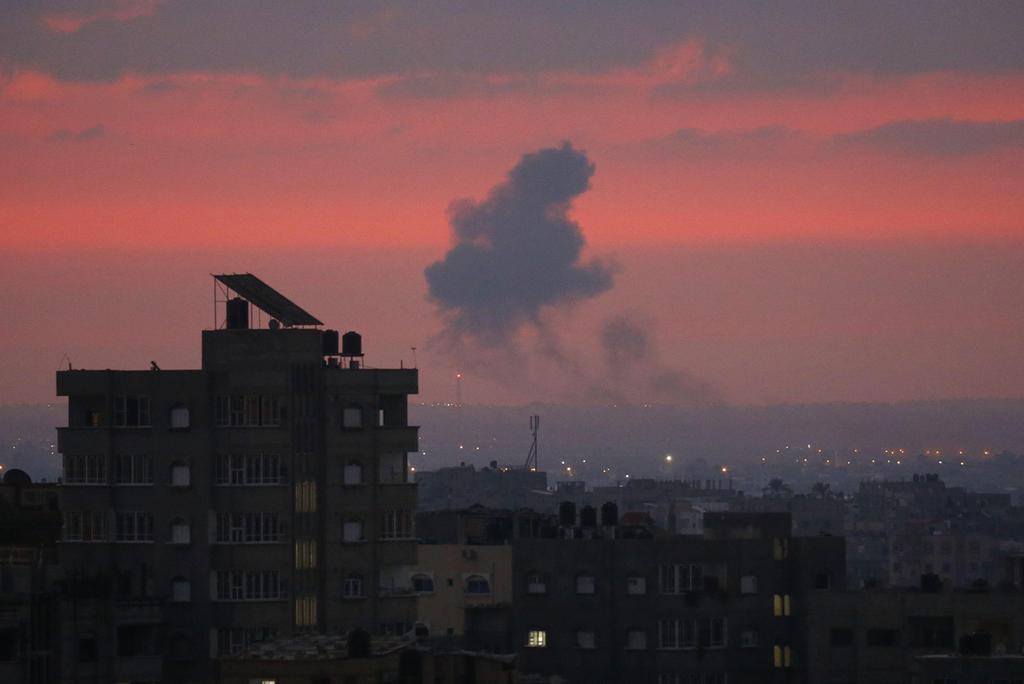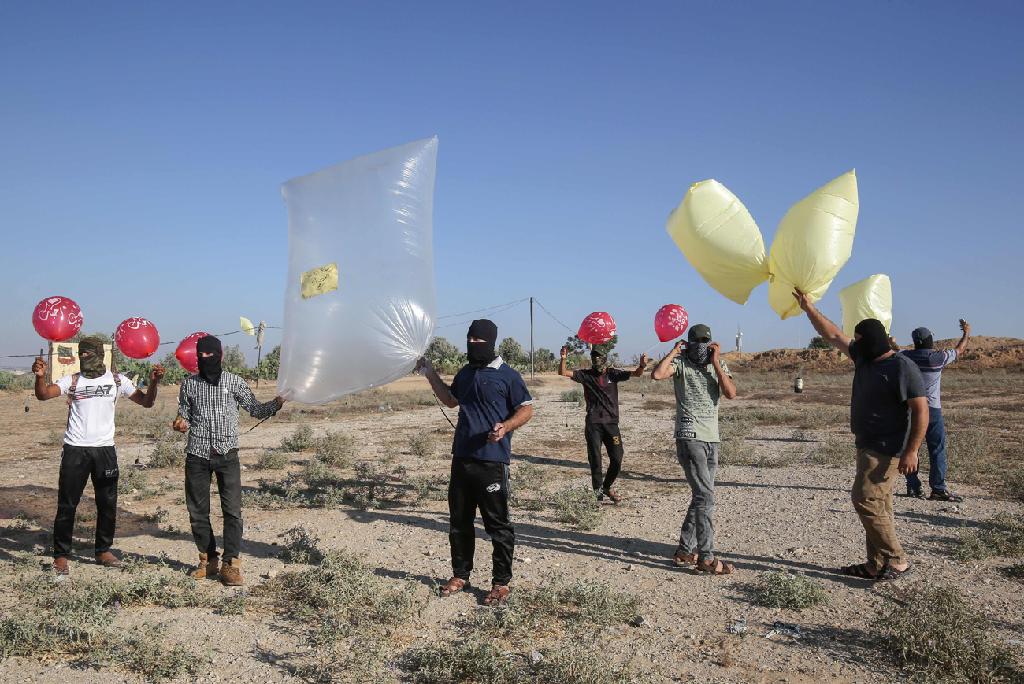In a burnt and blackened wheat field along the Gaza border, Israeli firefighters brave the dry summer heat to extinguish blazes caused by fire balloons launched from the Palestinian enclave.
Palestinians have sent dozens of helium balloons laden with incendiary material across the frontier in recent weeks to push Israel into easing its blockade of the Hamas-run Strip, imposed after the terror group seized control in the coastal enclave that is home to two million people.
4 View gallery


Israel Nature and Parks Authority workers putting out a fire sparked by an incendiary balloon near Kibbutz Or HaNer
(Photo: Amnon Ziv )
Winds blowing inland from the Mediterranean Sea carry the balloons towards southern Israeli towns and farmland, dripping chemicals as they fly and igniting brush fires when they land.
“To see the fields near your home burning, it’s indescribable, because it’s not happening naturally,” said Haim Yalin, a former MK who lives in Kibbutz Be’eri, 4 km from the Gaza border.
Local residents and IDF soldiers have joined firefighters to fight the blazes. A spokesman for the National Fire and Rescue Authority said some 460 fires so far have ravished mostly open areas, but have also damaged nature reserves.
Regular party balloons, condoms and large plastic bags are filled with helium and used to make the fire balloons by attaching an incendiary device, some times as simple as a burning string or even a cigarette.
Occasionally the balloons are strapped with explosives.
In one ashy field, a soldier beat down smoke with a fire broom as another sprayed it with a hose. Nearby, a hollowed out fox skull sat on a bed of charred leaves.
With tensions high, Israel closed its main commercial crossing with the impoverished Strip earlier this month and halted fuel imports, causing Gaza’s only power plant to shut down. Gaza authorities announced a lockdown on Monday after a coronavirus outbreak in the enclave.
Israel has struck Hamas facilities almost nightly for the past two weeks, and on Friday the terror group fired a dozen rockets towards Israeli towns. Mediators from the United Nations, Egypt and Qatar - the latter providing millions of dollars in aid for Gaza - have been working for calm.
Some of the Palestinians who launch the balloons — they describe themselves as the “Balloon Units” — say they narrowly escaped the Israeli airstrikes.
But potential retaliation wouldn’t stop them, they said.
“We know it is a simple tool - but it causes fires, it causes panic and it shows we will not keep silent as long as our people continue to suffer,” a Palestinian source close to the "Balloon Units" said.




